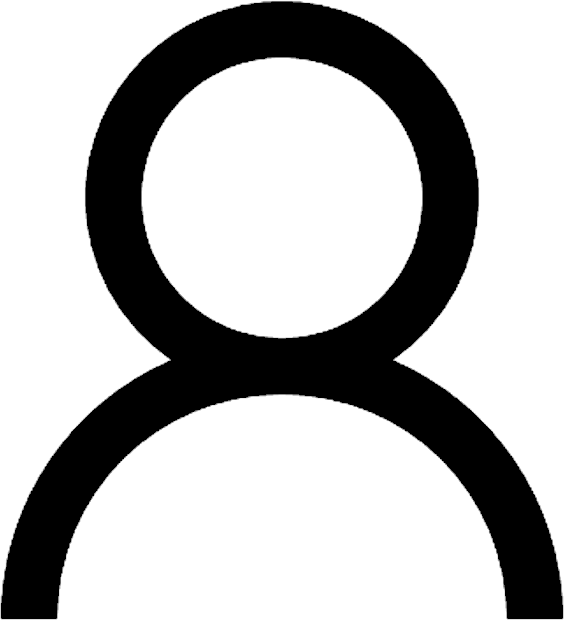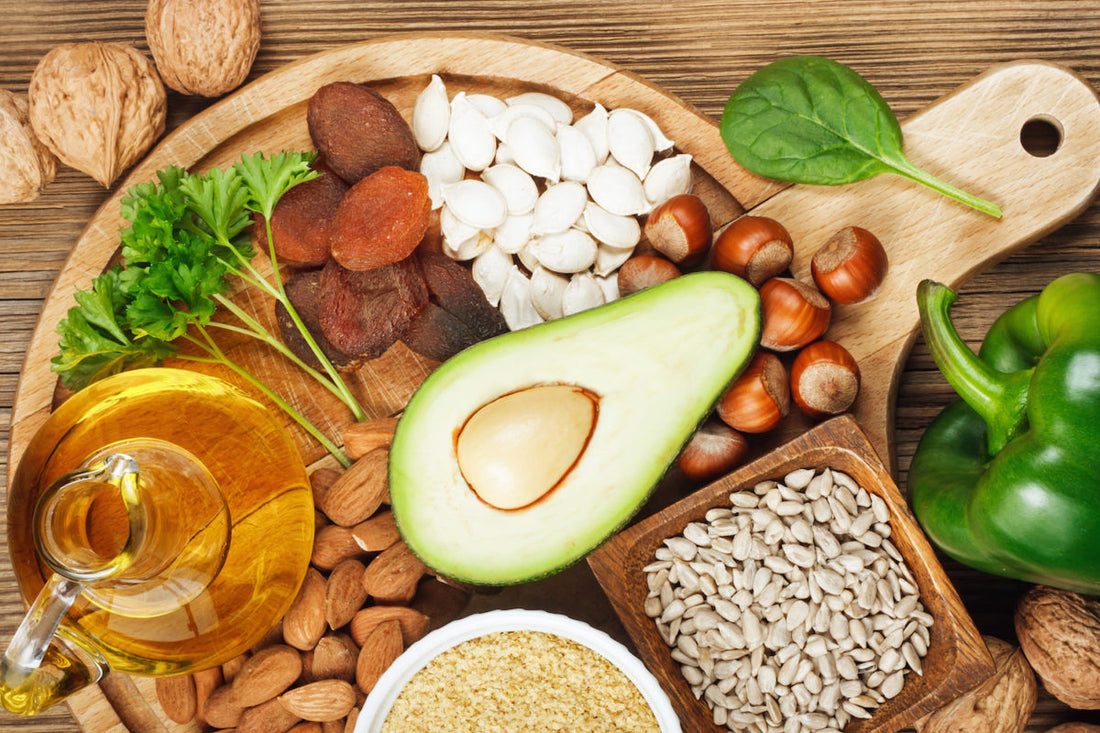The main function of vitamin E in the body is to act as a powerful antioxidant that prevents free radical damage to specific fats in the body that are critical for your health.
You may know it as something that helps keep your skin and hair healthy, but vitamin E also plays a role in inflammatory processes, inhibition of platelet aggregation, immune enhancement, and can help prevent and treat disease.
Benefits of Vitamin E
As we have established, vitamin E does more than just keep your hair healthy and hydrated. There are enough benefits to consuming vitamin E that will make you want to make sure you get your daily recommended intake.
Here are eight benefits of vitamin E:
Balances cholesterol
Your liver naturally produces cholesterol so that your cells, nerves, and hormones can function properly. Cholesterol only becomes dangerous when it oxidizes, and free radical damage in the body leads to cholesterol oxidation, something that vitamin E can fight.
Tocotrienol isomers of vitamin E have three double bonds that positively affect heart health due to their ability to reduce the activity of an enzyme that controls cholesterol production. They can also prevent cell adhesion, which slows down progression of atherosclerosis – hardening or thickening of the arteries.
Balances hormones
Vitamin E plays a role in balancing your endocrine and nervous systems, which naturally balances your hormones. Symptoms of hormonal imbalance may include:
- weight gain
- allergies
- changes in the skin
- anxiety
- fatigue
- PMS
Repairs damaged skin
Our skin goes through more than we know from being in the sun, hot showers, unnatural skin care products, unhealthy foods, etc. Vitamin E acts as a natural anti-aging nutrient in our body by strengthening the capillary walls and improving moisture and elasticity.
Studies have shown that vitamin E reduces inflammation within your body and on your skin, which helps keep our skin looking healthy and youthful.
These antioxidant properties are also helpful for when you’re exposed to UV rays or cigarette smoke, protecting you against skin cancer. And since vitamin E helps with healing the skin, it can be useful in decreasing signs of acne and eczema, and can treat sunburn and scars.
Fights free radicals and prevents disease
Free radicals naturally occur in your body and they fight and break down healthy cells, which can lead to cancer and heart disease.

Some isomers of vitamin E have powerful antioxidant abilities that help reduce free radical damage, fight inflammation, and slow aging in your cells that can fight health issues like heart disease.
Improves vision
Along with the help of vitamin C, beta -carotene, and zinc, vitamin E may help decrease the risk of age-related macular degeneration, which is a common cause of blindness.
Helps with Alzheimer’s
Vitamin E may slow down memory loss and functional decline in people with moderately severe Alzheimer’s or other neurodegenerative disorders. Research shows that the anti-inflammatory activity of tocotrienols help protect against the disease.
Improves muscle strength
Vitamin E can increase your energy and reduce the level of oxidative stress on your muscles after you exercise. It can also help with muscle strength by promoting blood circulation, strengthening your capillary walls, and nourishing your cells, which all in turn can eliminate fatigue.
May lower cancer risk and improve the effects of medical treatments
Although some people have to go through medical treatments to help with cancer or disease, they can be more harmful to us than we would like. Things like radiation and dialysis can have unwanted effects that vitamin E can lessen.
Foods High in Vitamin E
Luckily for us, supplements aren’t the only way to get your vitamin E. It can only be found in plant foods like nuts, certain oils, vegetables, and fruits, and can help you reap the benefits of this vitamin. Here are just a few you can start incorporating into your diet:
- Almonds
- Broccoli
- Spinach
- Avocado
- Butternut squash
- Tomato
The USDA recommends 15mg of vitamin E per day for adults. To give a better understanding, here are some other foods high in vitamin E you can try:
- A cup of sunflower seeds – 33.41 mg (220 percent)
- 1 cup hazelnuts – 20.29 mg (133 percent)
- Single cup almonds – 39.98 mg (218 percent)
- 1 cup plain/uncooked wheat germ – 18 mg (120 percent)
- One whole raw mango – 3.02 mg (20 percent)
So if you’re wondering how to get your share of vitamin E each day, eat one or two of these foods and you should be able to see the benefits of this vitamin.
Uses For Vitamin E Oil
Vitamin E is a fat-soluble nutrient and antioxidant found in many foods, but the oil in its purest form, called tocopherol, is highly beneficial when mixed with other antioxidants. You can find it in a lot of skin care products and in the form of capsules in your local drugstore. They are typically derived from vegetable oils like sunflower seed oil or soy beans.
Vitamin E oil works to reduce wrinkles, keeps the skin looking youthful, and blocks free radicals from the body, which play a large part in the aging process. So just a little vitamin E oil on your face, cuticles, skin, or hair on a daily basis can help repair damage and keep the cells healthy.

Free radicals can also prevent the healing of scars, so the application of vitamin E oil can help to repair and improve the appearance of damaged tissue. This is especially useful for people who are prone to acne, and get scars regularly.
Here are some great uses for vitamin E oil:
- Natural anti-aging product
- Night cream
- Smooth out tangled hair
- Sunburn relief
- Relieves psoriasis
- Easy makeup remover
- Stretch mark cream
- Scar healer
Signs of Vitamin E Deficiency
There seems to be a long list of signs that show you could have vitamin E deficiency. These signs range from enlarged prostate to miscarriages to decreased circulation of blood. But here are some of the more common signs you should look out for:
- Loss of vibration and position senses
- Muscle weakness
- Paralysis of muscles responsible for eye movements
- Slow tissue healing
- Dry hair or loss of hair
- Decrease in sex drive
- Leg cramps
To prevent yourself from lacking vitamin E, it would be helpful to know how much you should have. The recommended dietary intake for vitamin E includes what you get from your food and from your supplements.
Here are the USDA recommendations for each group of people:
Adolescents 1-3 years old: 6 mg/day
Children 4-8 years old: 7 mg/day
Children 9-13 years old: 11 mg/day
Females 14 years and older: 15 mg/day
Pregnant females: 15 mg/day
Breastfeeding mothers: 19 mg/day
Males 14 years and older: 15 mg/day
Remember, vitamin E is fat-soluble so supplements work best when they are absorbed with food and other antioxidants. It is said to be best to eat a healthy and well-balanced diet that’s high in fruits, vegetables, and whole grains because it’s difficult to over-consume vitamin E when getting it from your diet.
Benefits of Camel Milk
It’s important to note the importance of vitamin E. Aside from keeping our skin, hair, and nails healthy, this nutrient and antioxidant helps balance hormones and cholesterol. It also prevents cancer and heart disease, and repairs damaged skin.
Although one serving of camel milk has only 1 percent of your daily recommended intake of vitamin E, it is abundant in vitamin C, calcium, folate, thiamine, riboflavin, and other nutrients. Camel milk has shown to help strengthen the immune system, stimulate circulation, treat diabetes and allergies, and is a great alternative to people who are lactose intolerant.
So make sure you get enough vitamin E in your diet, and try camel milk to reap the benefits mentioned above!

 Log in
Log in
